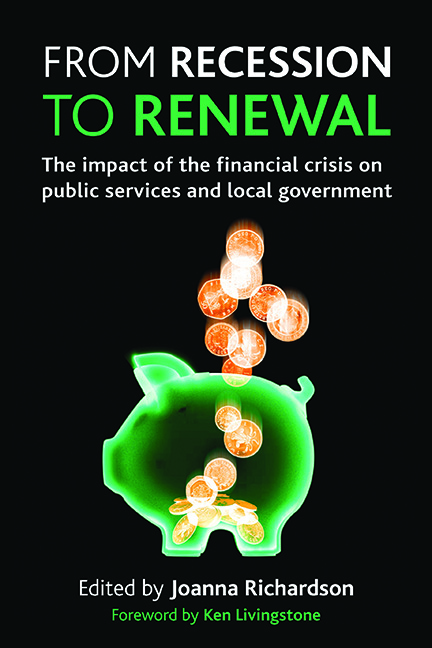 From Recession to Renewal
From Recession to Renewal ten - Conclusion: from recession to renewal?
Published online by Cambridge University Press: 01 September 2022
Summary
Will we seize the opportunity to restore our sense of balance between the market and the state, between individualism and the community, between man and nature, between means and ends? (Joseph Stiglitz, 2010, 296)
It's a matter of trust
The essential ingredient in the understanding of money and exchange of goods and services is trust (Ferguson, 2008; Lonergan, 2009). It is also vital for social order and good governance. Stiglitz (2010, 289) says that ‘trust is the grease that makes society function’. Society, however, feels let down by the systems of the market that resulted in the credit crunch, leading to closure of businesses, increasing unemployment and house repossessions; and yet bankers’ bonuses were still eye-wateringly large in 2010, as a result of profits made following quick recovery on the markets. British people also felt that their trust in government was eroded after the scandals in 2009 over the behaviour of some politicians in relation to their expenses.
There was public scepticism over the opacity of the banking system, and what appeared to be a self-serving system of expenses for politicians. Trust was in low supply. In order to rebuild trust, it is important to have a proper understanding of what happened in the financial crisis.
This book has sought to identify some of the social outcomes of the financial crisis and examined their impact on public services, government and citizens. Rather than providing analysis, or simple predictions, it has aimed to stimulate thought about the wider themes to be addressed, such as governance and empowerment. In the early part of the book both Lambie and Holland provoked us to think about the radical changes needed to prevent such a crisis happening again. Such changes are not about tweaking the regulation of banks, or debating public spending cuts, but a fundamental rethink about how we see society, government – the world. Hutton (2010) galvanises us to think this through: ‘We have, in short, lived through an epic economic mistake culminating in a first order financial crisis. There cannot be a return to business as usual’. Other commentators exhort us to look beyond the economic causes and implications of the recent crisis.
- Type
- Chapter
- Information
- From Recession to RenewalThe Impact of the Financial Crisis on Public Services and Local Government, pp. 199 - 220Publisher: Bristol University PressPrint publication year: 2010
